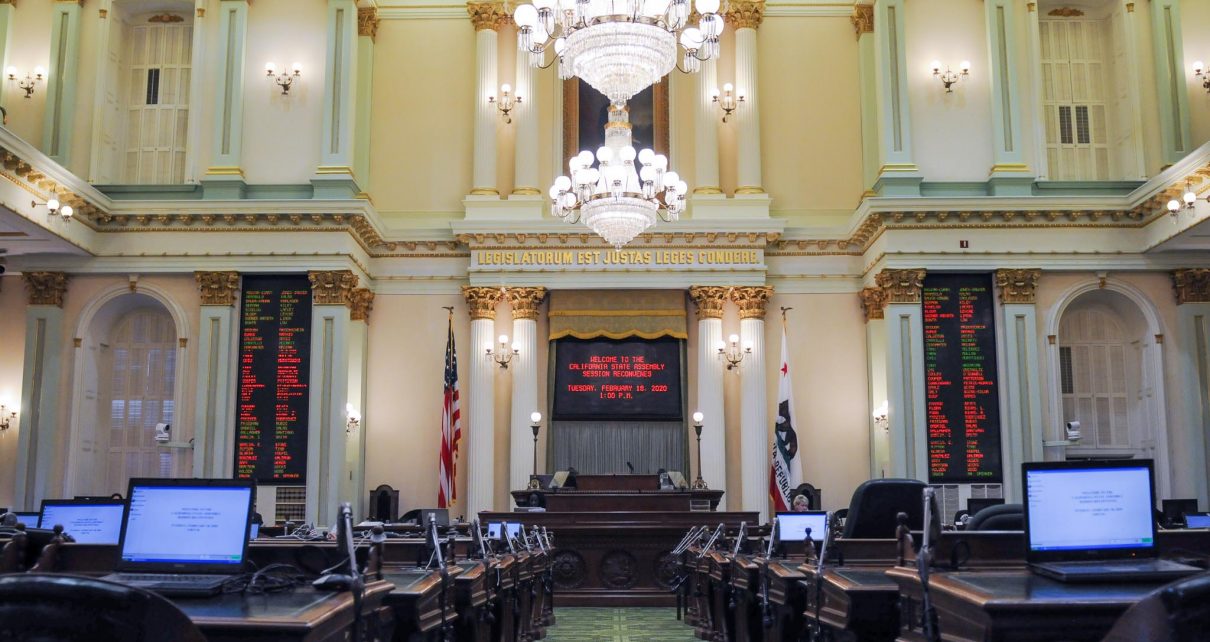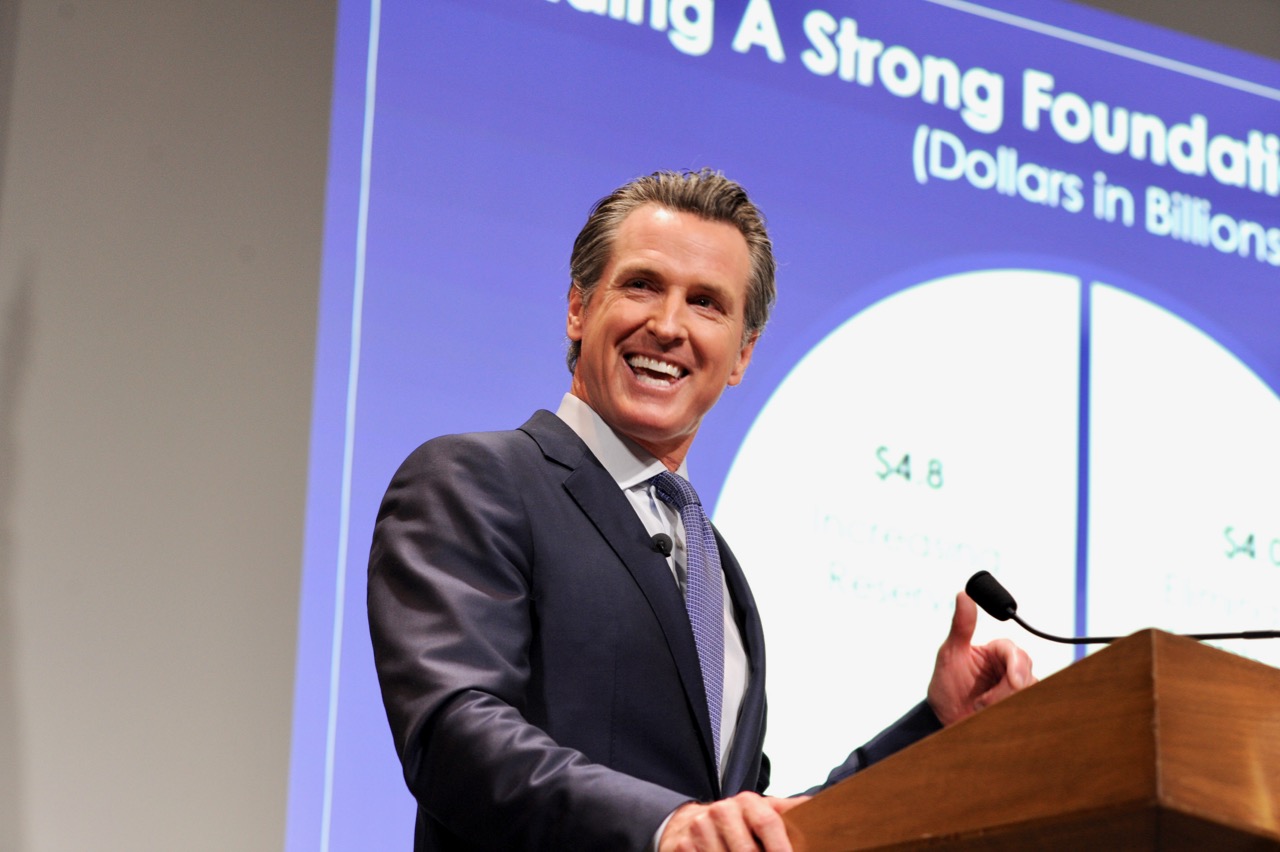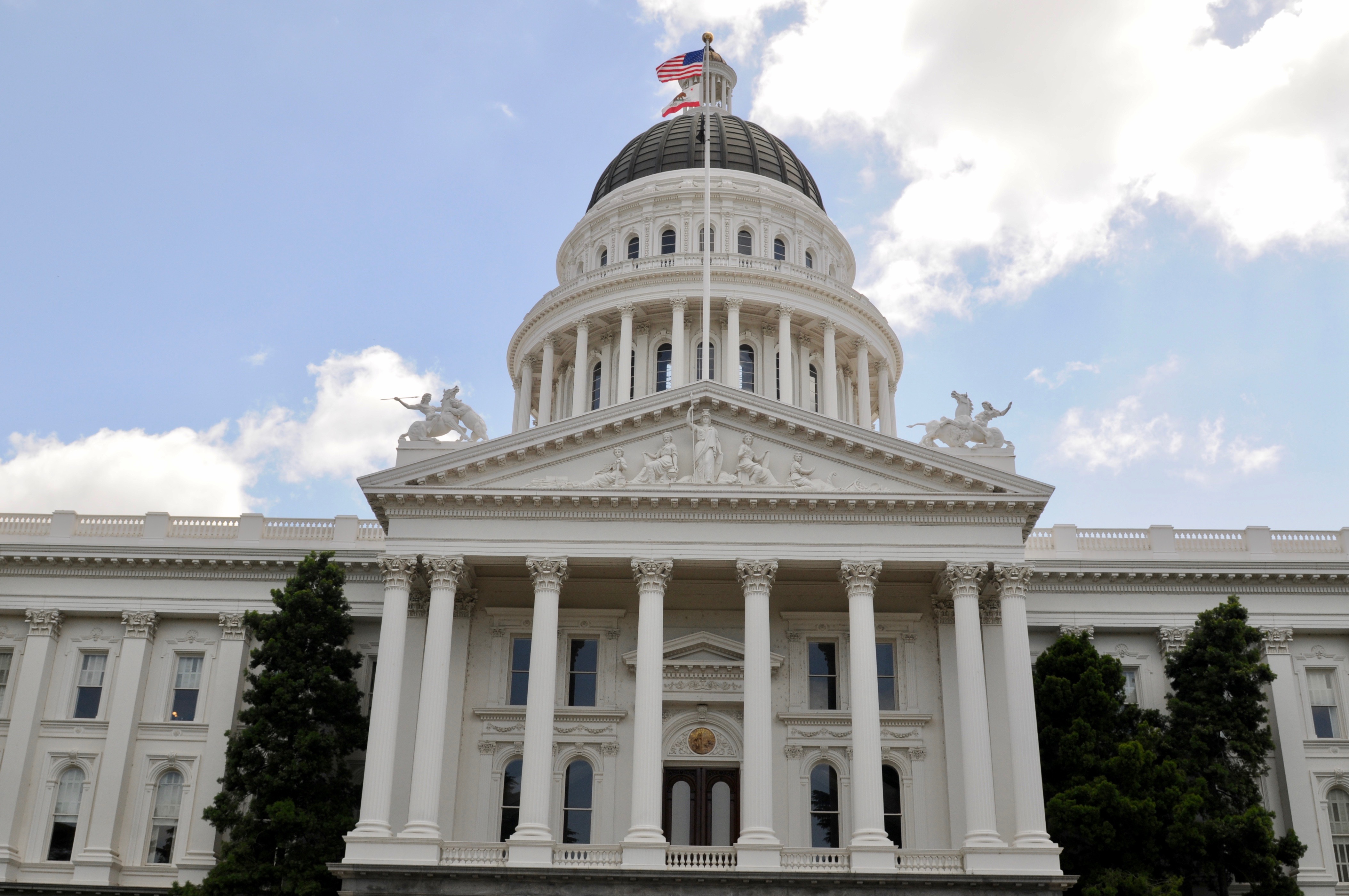
California State Assembly. (Photo: Kevin Sanders for California Globe)
Two New Tax Bills Arise in Waning Days of Session
Taxpayer is prohibited from reinvesting refunds for improvement of immobile capital equipment unless under a project labor agreement
By Chris Micheli, August 29, 2020 6:58 am
On August 28, Assembly Bill 1876 was amended to make a series of tax law changes. AB 1876 is authored by the Assembly Committee on Budget and it would amend Section 17052 of the Revenue and Taxation Code. As a budget trailer bill, the bill concerns federal individual identification numbers, the earned income tax credit, and the young child tax credit.
California law has conformed with modifications to the federal earned income tax credit. The law provides that the amount of the credit is calculated as percentage of the eligible individual’s earned income and is phased out above a specified amount as income increases. The EITC is allowed to an eligible individual if the tax return includes the federal individual taxpayer identification number of the eligible individual if the qualifying child is younger than six years of age.
In addition, state law allows a refundable young child care tax credit for years beginning January 1, 2019. AB 1876 would, for years after January 1, 2020, remove the limitations on the use of the federal individual taxpayer identification number in order to be eligible for the EITC and the refundable young child tax credit. As a budget trailer bill, AB 1876 will take effect immediately once it is signed into law by the Governor.
Although officially being amended on August 30, Senate Bill 51, authored by Senator Maria Elena Durazo (D-Los Angeles), amendments came into print late in the day on August 28 to allow refunds of the California Competes tax credit. The bill amends Sections 17059.2 and 23689 of the Revenue and Taxation Code. Under existing state law, there is the CalCompetes tax credit that is in existence from January 1, 2014 through January 1, 2030. The credit is the amount approved by the California Competes Tax Credit Committee that is based upon specified factors.
SB 51 would allow a qualified taxpayer to elect to be paid a refund for any amount in excess of tax liability, not to exceed the amount of total taxes imposed by the state. A “qualified taxpayer” is one that has created at least 5,000 prevailing wage, full-time jobs in California each year for a period of 10 years. And, the qualified taxpayer who receives a refund would have to reinvest the refund into immobile capital equipment that supports infrastructure improvements, expansion, or developments for media production facilities in California.
Section One of the bill amends Section 17059.2 of the Revenue and Taxation Code. This provision is in the Personal Income Tax Law. It provides that a refund of excess credit above tax liability can be refunded beginning January 1, 2021. In order to be eligible for the refund of the credit, the qualified taxpayer must provide necessary information to the Franchise Tax Board. The qualified taxpayer is prohibited from reinvesting refunds for the improvement of immobile capital equipment unless the improvements are made under a project labor agreement and using a skilled and trained workforce. The bill defines “qualified taxpayer,” “full-time equivalent,” “immobile capital equipment,” “project labor agreement,” and “skilled and trained workforce.”
Section Two of the bill amends Section 23689 of the Revenue and Taxation Code. This provision is in the Corporate Income Tax Law and is the same language contained in Section One of the bill.
- Miscellaneous Civil Action Proceedings - February 23, 2026
- Probate Code Could Be a Basis for Statutory Interpretation Principles - February 22, 2026
- Conservation Banks - February 22, 2026




